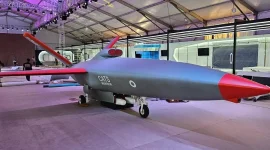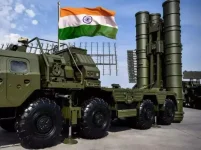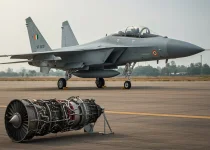- Views: 4K
- Replies: 27
A leading defence expert has called upon the Indian Ministry of Defence (MoD) to accelerate the development of the indigenous Kaveri engine, suggesting its integration into future Tejas Mk1A fighter jets.
This call to action comes in light of ongoing delays in the supply of F404 engines from GE Aerospace, highlighting India's vulnerability to disruptions in the global supply chain.
The expert emphasized the urgent need for a reliable domestic engine solution to avoid setbacks in India's ambitious Tejas program. While the Kaveri engine, in its current "dry" configuration, produces around 49kN of thrust, it is believed that with the addition of an afterburner, it could achieve "wet" thrust comparable to the GE F404.
Calculations suggest that an afterburner-equipped Kaveri engine could generate approximately 83.3 kN of thrust. Although slightly lower than the F404's 84 kN, the Kaveri's "flat-rated" design, optimized for high-temperature and high-altitude conditions prevalent in India, could compensate for this difference. This design ensures consistent thrust levels even in challenging environments, a feature not always present in foreign-made engines.
The recent delay in F404 engine deliveries underscores the risks associated with relying on foreign suppliers for critical military technologies. The expert argues that India's dependence on imported engines leaves its defence programs susceptible to potential disruptions, especially in the face of global uncertainties. A fully operational Kaveri engine would not only ensure a steady supply of engines for the growing Tejas fleet but also provide India with a strategic advantage.
To achieve this goal, the expert urges the MoD to commit to increased funding and support for the Kaveri engine program. With adequate resources, it is estimated that the Kaveri could be ready to power the Tejas Mk1A within the next five years. Furthermore, a successful Kaveri engine would lay the foundation for future indigenous fighter programs, providing a proven and reliable engine solution.
This call for self-reliance in aero-engine technology reflects a growing sentiment within India's defence community. As India strives to strengthen its defence capabilities, the development of a robust domestic engine industry is seen as a crucial step towards achieving strategic autonomy.




